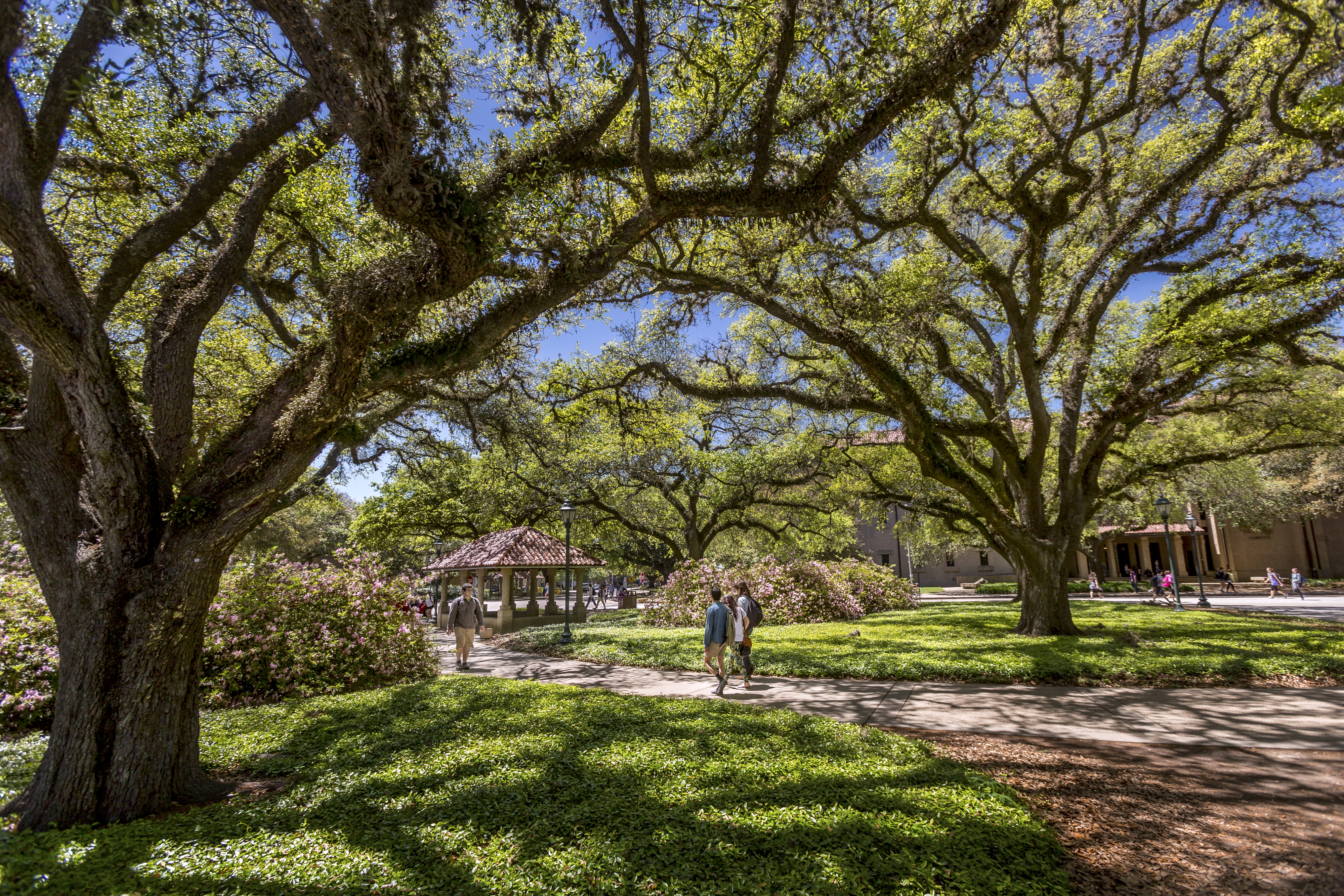Tackling Spring Allergies: LSU Health Shreveport Expert Offers Guidance for Pollen Season Relief
April 08, 2025

Dr. David A. Kaufman, LSU Health-Shreveport associate professor and chief of the Division of Allergy/Immunology; program director of Allergy/Immunology Fellowship Training Program; medical director of Ochsner LSU Asthma, Allergy, and ENT Center
The pollen season, which typically starts in February and runs through summer, can be a miserable time for allergy sufferers.
But there are ways to help reduce the suffering. In this Q&A, Dr. David A. Kaufman, chief of the Division of Allergy/Immunology at LSU Health Shreveport, explains the science behind allergies, tells what people can expect this pollen season, and suggests ways to manage allergies and related symptoms.
When does pollen season typically start and end, and what are the main contributors to spring allergies?
There are two components of the spring pollen season. The first is Tree Pollen, which is what we have been seeing and suffering from. The season lasts from February through April. The next is Grass Pollen, which starts in April, peaks in May, and lasts through the summer.
How does this year’s pollen season compare to previous years?
It seems like every spring is the worst pollen season ever! This season certainly does seem more severe than last year.
What weather conditions can make a pollen season worse or milder?
A mild, wet winter followed by a dry spring would be prime conditions for a worse pollen season. Long, soaking rains wash pollen off the trees and out of the air. Short-duration thunderstorms aren’t sufficient to lower pollen counts.

Tree Pollen, the first of two components of the spring pollen season, typically lasts from February through April.
Are there specific conditions in Louisiana that make pollen exposure worse for residents?
Louisiana is a prime state for allergies to pollen. With our southern latitude and gulf moisture, we have longer pollen seasons compared to other parts of the country. Additionally, our mold spore counts are high much of the year secondary to the moisture and humidity.
Can you explain how pollen affects the human body and why some people react more severely than others?
Family history can play a role in allergy severity, but almost 50% of the population suffers from allergies, or hay fever, some worse than others. When pollen contacts the eyes, nasal membranes, or airways in asthmatic patients, it immediately reacts with the immune system, leading to the release of histamine and other substances which cause inflammation.
Beyond sneezing and itchy eyes, what are some other effects of seasonal allergies on health and daily life?
Depending on the individual, there are numerous symptoms which can happen after the local allergic reaction in the eyes and airways. Eye watering, redness, and swelling are common ocular symptoms. Nasal congestion, mucous production, itchy nose and throat, and increased post-nasal drainage are common nasal symptoms. Asthmatics who are allergic to pollen can suffer an exacerbation of their symptoms including cough, wheezing, or shortness of breath.
Daily life becomes difficult, with poor quality sleep, poor performance at work or school, lack of energy, fatigue and headaches affecting patients. Missed days of school and work increase during pollen season. Even though it is called “hay fever,” fever is not a symptoms of allergies and usually indicates a respiratory infection.
What are the best ways for allergy sufferers to reduce their exposure to pollen during peak season?
It is difficult to stay inside, but that is the only surefire way to reduce pollen exposure. Pollen counts tend to be highest in the early morning, so outings at that time may be avoided. Keep windows closed and wipe down pets after they come inside. Wearing glasses or sunglasses can divert pollen from entering the eyes. Masks help keep pollen out of the nose and airways.
Are there any over-the-counter or prescription treatments you recommend, and when should someone see a doctor for their allergies?
The first thing people turn to are over-the-counter antihistamines. Newer options such as Xyzal (levocetirizine), Zyrtec (cetirizine), and Allegra (fexofenadine) are preferred due to their daylong effect and minimal drowsiness, compared to older treatments such as Benadryl (diphenhydramine). For congestion and other tough symptoms, people can use a daily corticosteroid nasal spray, such as Flonase (fluticasone) or Nasacort (triamcinolone). If relief is still not achieved, people should consider visiting a board-certified allergist for the most accurate allergy tests and the most effective treatments.
How can lifestyle choices help people manage allergy symptoms?
To help in managing symptoms and overall health, it is important to stay well-hydrated and eat a balanced diet. Getting at least 7-8 hours of good quality sleep is imperative to coping with allergies and other health problems.
Do you foresee any long-term changes in pollen season due to climate change?
It is known that the concentration of carbon dioxide (CO2) is increasing in our atmosphere. Higher CO2 actually stimulates higher pollen production and release in plants. And, with warmer temperatures comes longer and more intense pollen seasons.
Next Step
Discover stories showcasing LSU’s academic excellence, innovation, culture, and impact across Louisiana.


